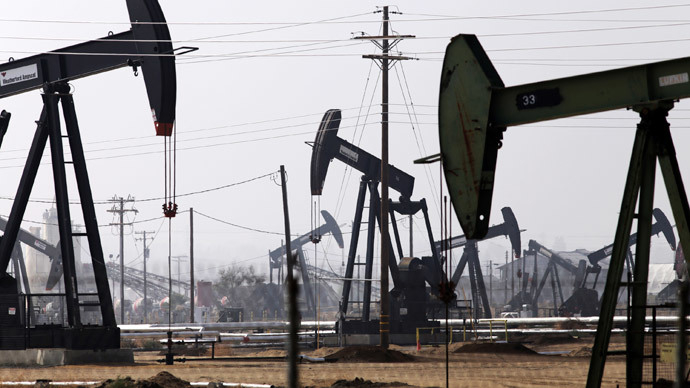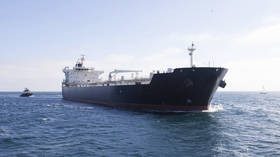OPEC ‘effectively dissolved’; oil will slide to $50 - Bank of America

OPEC has lost its competence, as it failed to stabilize oil prices at the last meeting, according to Bank of America. It warns oil will slide to $50 a barrel leading to wild prices, where only rich Middle East states like Saudi Arabia will benefit.
Countries that don’t possess vast reserves, such as Venezuela and Nigeria, will struggle to survive; The Telegraph quotes Francisco Blanch, Bank of America’s Head of Commodity Research.
READ MORE: Oil slumps 4% as OPEC leaves output unchanged
The crucial changes in the global energy industry are also caused by the development of liquefied natural gas (LNG). Years of oversupply will bring down oil prices allowing Europe to look for cheaper sources of gas.
If oil producers don’t manage to curb that oversupply, the bank expects the price will slide to $50 per barrel. It will take around six months to end the 1 million barrels a day of excess oil on the market.
“We expect a pretty sharp rebound to the high $80s or even $90 in the second half of next year,” said Sabine Schels, the bank’s energy expert.
Crude oil has lost around 40 percent of its price since the beginning of the year, and is hitting five-year lows.
The price of Brent crude has fallen below $66 per barrel at 14.00 MSK.
The Bank of America’s year-end report says at least 15 percent of US shale producers are losing money at current prices, and more than a half will if crude falls below $55. The high-cost producers in the Permian basin will be the first to be hit by the crisis, and may soon have to reduce their oil output.
The report said the falling oil price could lead to the scrapping of shale projects in Argentina and Mexico, and force the cutting back of exploration of Canadian oil sands and some of Russia’s remote fields. The major oil companies will have to cancel projects even if they make money with the Brent crude price below $80.
Bank of America said the catastrophic drop in oil prices is worth $1 trillion of stimulus to the global economy, which is equal to a $730bn “tax cut” in 2015.

Fed's done
World asset markets may face a stress test as the US Federal Reserve has ended its program of quantitative easing, said Barnaby Martin, the bank’s European credit chief.
"Our biggest worry is the end of the liquidity cycle. The Fed is done. The reach for yield that we have seen since 2009 is going into reverse”, he said.
READ MORE: Federal Reserve ends quantitative easing bond-buying program
The end of the US “easy money” policy can put an end to low interest rates and add pressure on the global economy.
Bank of America said quantitative easing in Europe and Japan will make up for just 35 percent of the global stimulus lost as the Fed program ends. That is creating a serious threat for global market performance.
The world has become more dependent on central bank stimulus. Bank of America said 56 percent of global GDP is currently supported by zero interest rates, as well as 83 percent of the free-floating equities on global exchanges. Half of all government bonds in the world yield less than 1 percent. Around 1.4 billion people are experiencing negative rates in any form.












